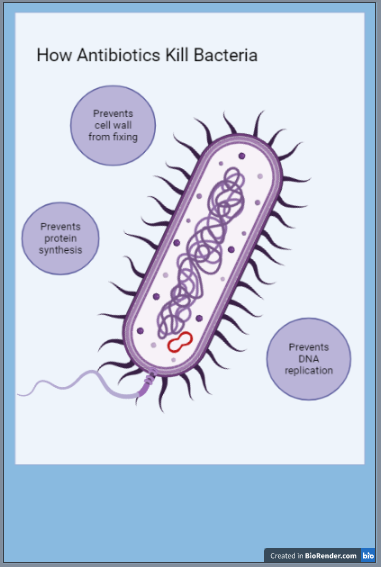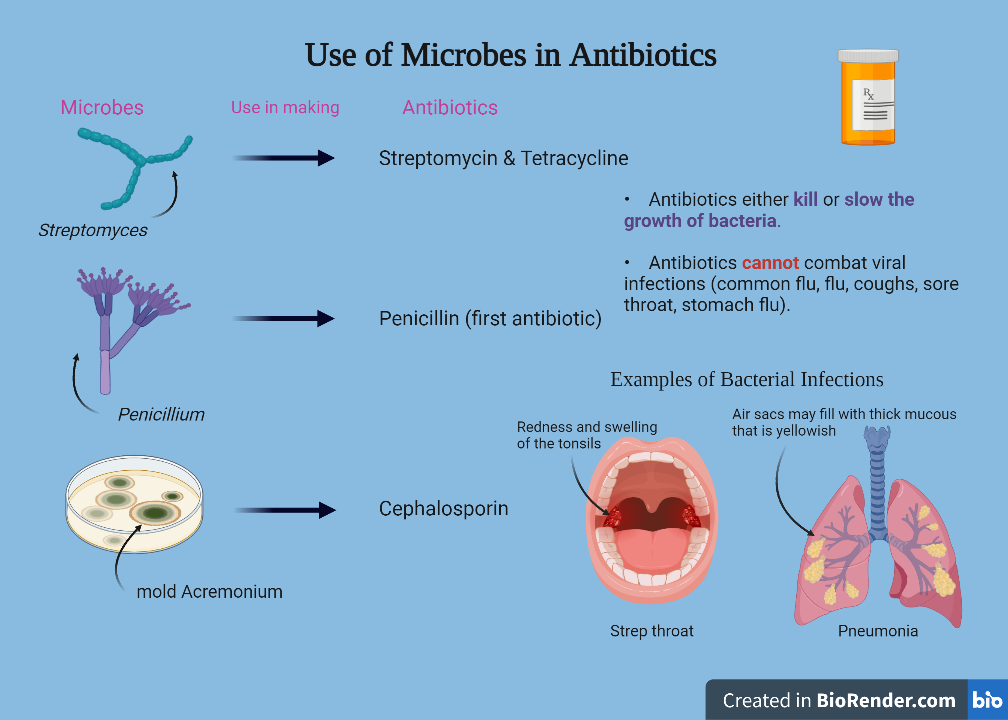Sarah, one of our Nuffield Research Placement students, has been investigating microbes known to be sources of antibiotics in our soil samples. Explore the tables below to find out the name of each antibiotic drug, whether it is prescribed for use in humans in the UK (information from the British National Formulary BNF), the species of microbe it came from, more detail about the microbe including kingdom and phyla and, importantly, did we find DNA from the microbe in our soil samples?
You will see that many microbes that produced antibiotic chemicals are from a genus called Streptomyces.
More information about antibiotics are given in the links below thanks to our University of St Andrews STEP 2023 teams of undergraduate students who have been writing and editing Simple Wikipedia articles relevant to our project and check out the antibiotic infographics created by the STEP 2022 team below.
https://simple.wikipedia.org/wiki/Azithromycin
https://simple.wikipedia.org/wiki/Cephalosporins
https://simple.wikipedia.org/wiki/Co-amoxiclav
https://simple.wikipedia.org/wiki/Daptomycin
https://simple.wikipedia.org/wiki/Fluoroquinolones
https://simple.wikipedia.org/wiki/Penicillin
https://simple.wikipedia.org/wiki/Streptomycin
Antibiotics work against bacteria. Antifungals work against fungi. Antivirals work against viruses. Together these medicines are called antimicrobials. But not all medicines with “anti” in their name work on microbes: for example antidepressants (such as SNRIs) help treat depression.
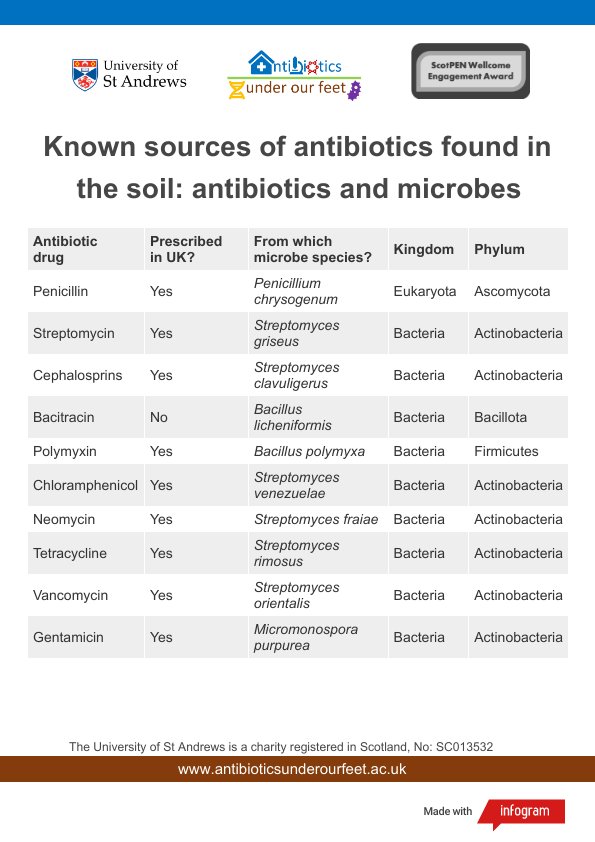
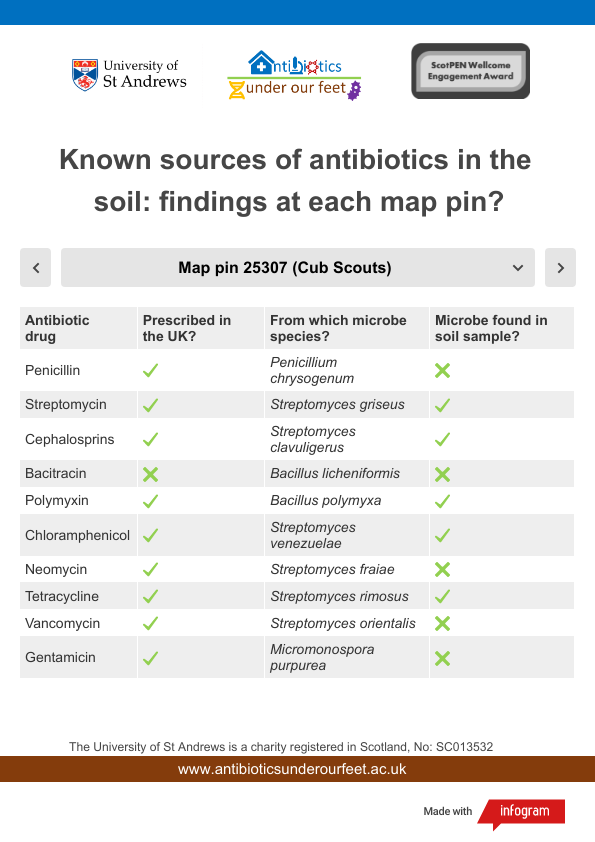
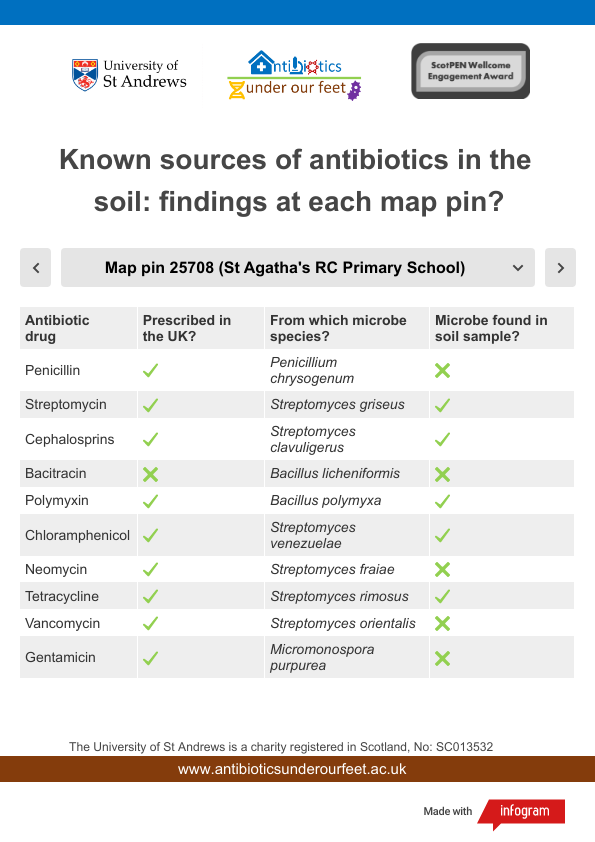
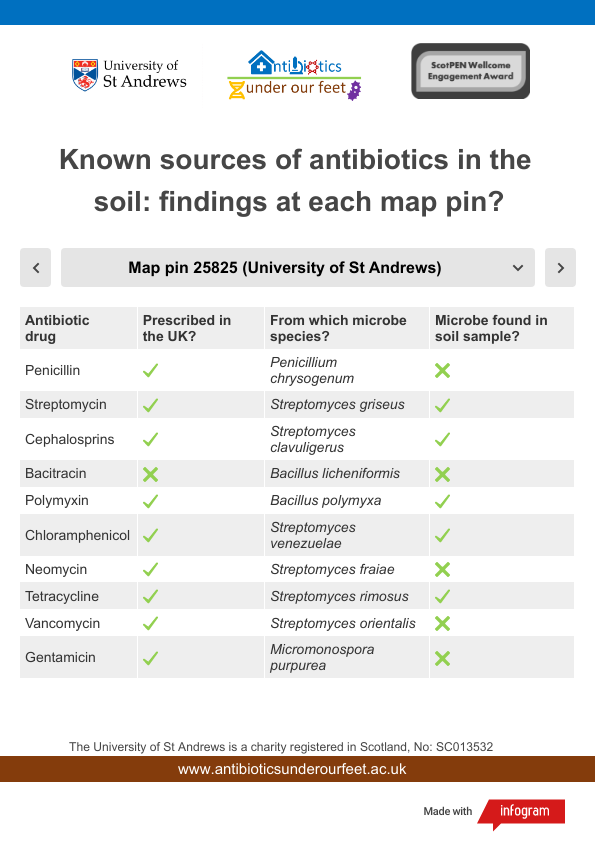
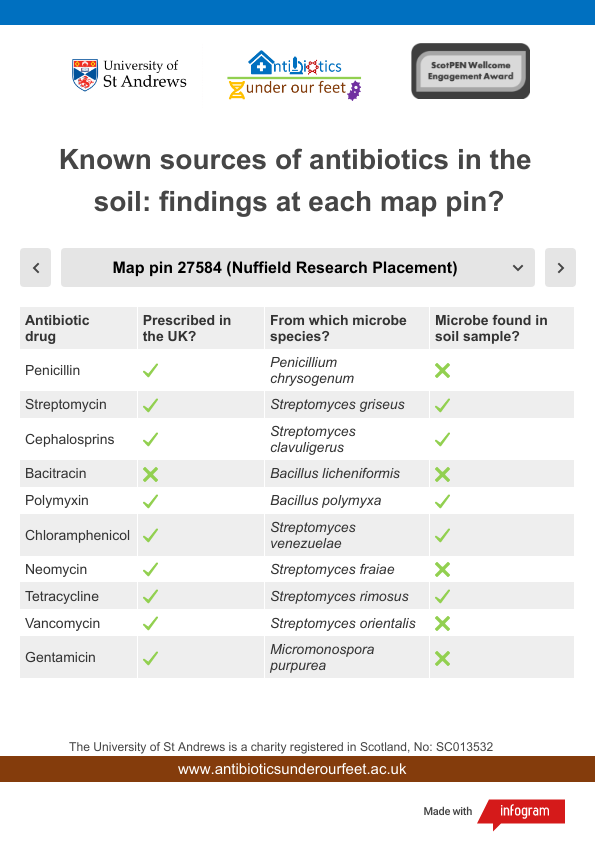
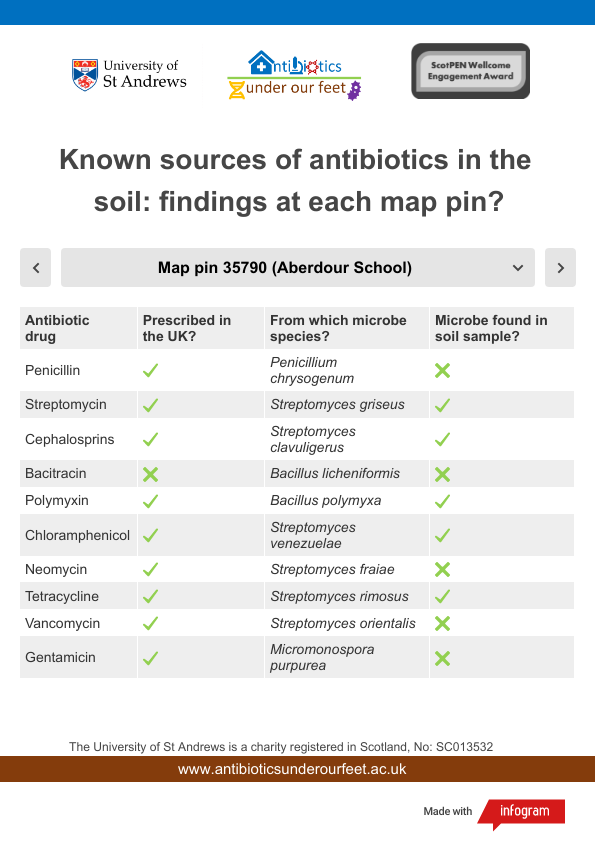
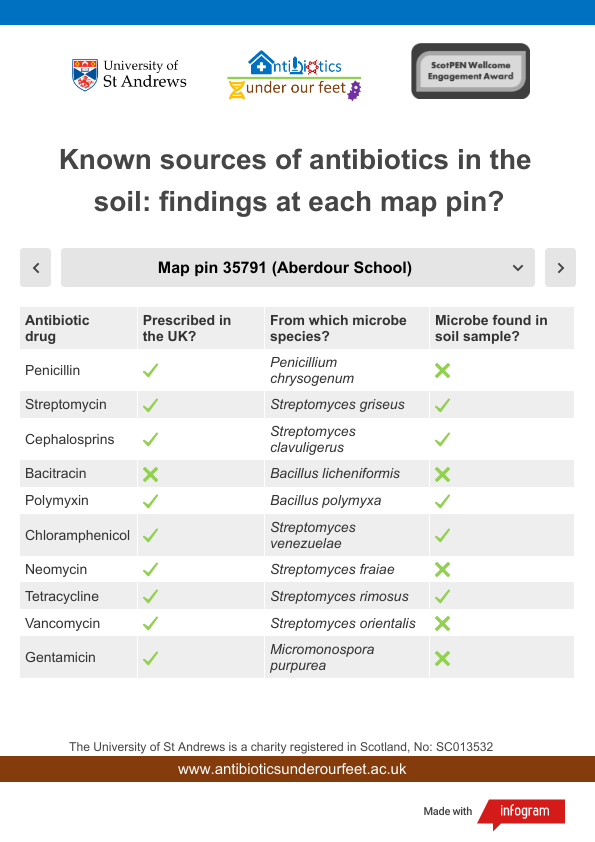
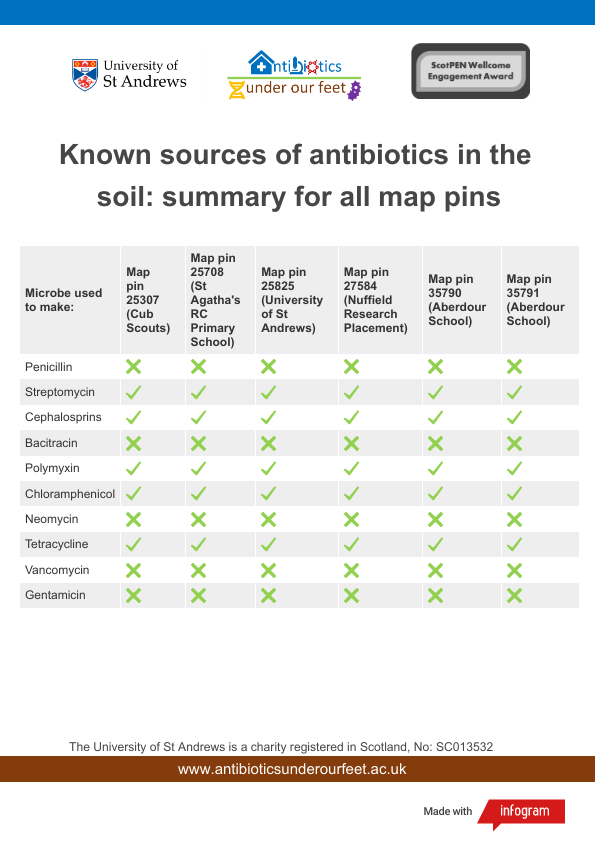
Results dataset available
